Quick answer: The Best SSL Certificate Provider in 2024 is Let’s Encrypt!
An SSL certificate shows that the Internet resource can be trusted and that the company that issued the certificate guarantees it.
There are several main types of certificates that indicate the level of validation of a certain company: domain validated (DV), organization validated (OV), and with extended validation (EV).
You can choose the most appropriate SSL certificate for each type of website (informational, commercial, service, blog). So, let’s review the main types of SSL you are able to choose from.
- Let’s Encrypt – Free
- Cloudflare One-Click SSL – Free
- FreeSSL from Symantec – Free
- SSL.com
- Comodo
- Symantec
- GeoTrust
- RapidSSL
- Thawte
1. Best free SSL certificate providers in July 2024
1.1 Let’s Encrypt
1.2 Cloudflare One-Click SSL
Cloudflare’s One-Click SSL is a popular choice for a free SSL certificate provider, especially for users who need basic SSL protection without additional costs. Here are the reasons why it is considered a good option:
-
Comprehensive Basic Features at No Cost: Cloudflare offers a range of essential features for free, including SSL. This makes it an attractive option for individuals or small businesses looking to secure their website without incurring extra expenses.
-
Flexible SSL for Basic Encryption: The free Flexible SSL from Cloudflare encrypts traffic between the visitor and Cloudflare’s servers. While this doesn’t provide end-to-end encryption (as traffic from Cloudflare to your server is not encrypted), it still offers a basic level of security suitable for websites that do not handle sensitive information.
-
Protection Against Small DDoS Attacks: Cloudflare includes a “Site under attack” mode in its free plan, which can protect your website against small-scale DDoS attacks, enhancing your site’s overall security.
-
Convenient DNS Control Panel: Users benefit from an easy-to-use DNS control panel, simplifying the management of domain name settings.
-
Seamless Hosting Transitions: Cloudflare facilitates moving to another hosting service without downtime, which is a significant advantage for websites that may need to switch hosting providers.
-
Effective Caching for Improved Performance: Cloudflare’s caching capabilities can save resources and increase the speed of your website, contributing to better user experience and potentially higher search engine rankings.
Pros:
- Offers a wide range of basic features for free, including SSL.
- “Site under attack” function for DDoS protection.
- User-friendly DNS control panel.
- Zero downtime when changing hosting providers.
- Effective caching that saves resources and boosts site speed.
Cons:
- The free SSL does not cover subdomains (like *.hello.world.com).
- The SSL certificate does not work on outdated systems like Windows XP.
- The lack of encryption from Cloudflare to your server leaves the traffic vulnerable to interception by ISPs or other entities.
- Vulnerable to man-in-the-middle (MITM) attacks; users need to upgrade to “Strict” SSL mode to mitigate this risk.
In conclusion, Cloudflare’s One-Click SSL is a solid choice for users seeking basic SSL protection without additional cost, especially for non-critical websites that don’t handle sensitive data. Its user-friendly features and added benefits like DDoS protection and effective caching make it a recommended option. However, users should be aware of its limitations in terms of encryption and potential vulnerabilities to certain types of attacks.
Visit Cloudflare One-Click SSL
1.3 FreeSSL from Symantec
FreeSSL from Symantec presents several advantages, particularly for specific types of users such as non-profit organizations and startups. Here are some of the key benefits and limitations:
Pros
-
High Reliability: Coming from Symantec, a well-established and reputable name in the cybersecurity industry, the reliability of FreeSSL is a significant advantage. Symantec’s long-standing presence in the market and expertise in security solutions lend credibility and trust to their SSL certificates, ensuring users that their web communications are securely encrypted.
-
Convenient Control Panel: The user-friendly and convenient control panel offered by FreeSSL is an added benefit. This ease of use is crucial for organizations that may not have extensive technical expertise, allowing them to manage their SSL certificates efficiently and effectively.
Cons
-
Limited Access: The most notable limitation of FreeSSL is its restricted availability. Being primarily intended for non-profit organizations and startups, it may not be accessible to all entities. For those not falling into these categories, there’s a waiting list, which might not be ideal for businesses or individuals needing immediate SSL certification.
-
Possibly Limited Features: Although not explicitly stated, free SSL certificates like FreeSSL might come with fewer features compared to paid versions. This could include aspects like the level of encryption, warranty, customer support, and certificate lifespan.
-
Suitability for Small Organizations: Given its targeted audience, FreeSSL might be more suited to smaller websites or organizations. Larger businesses or those with more complex security needs might find the certificate lacking in certain aspects.
Additional Considerations
-
Credibility with Users and Search Engines: Having an SSL certificate from a recognized provider like Symantec can increase the credibility of a website among users and search engines, potentially improving search engine rankings and user trust.
-
Security Best Practices: While FreeSSL provides the basic security necessary for encrypting web traffic, organizations should complement it with other security measures for comprehensive protection.
In summary, FreeSSL from Symantec is a good option for non-profits and startups looking for a reliable, user-friendly SSL certificate without the immediate financial investment. However, its limited availability and potentially reduced features compared to paid certificates might make it less suitable for larger businesses or those with immediate or complex SSL needs.
2. Best paid SSL certificate providers in 2024
2.1 SSL.com
SSL.com is a favorable choice as a paid SSL certificate provider for several reasons:
-
Affordability: SSL.com offers a range of plans that are budget-friendly, making it an accessible option for both small and large businesses. The cheapest plan starts at $36.75 to $49 a year, which is quite reasonable, especially for the features provided.
-
Strong Encryption Standard: All plans include 2048-bit RSA encryption, which is a high level of encryption and ensures a robust security standard for protecting data.
-
Unlimited Server Licenses: This feature is particularly beneficial as it allows the SSL certificate to be used on an unlimited number of servers without additional costs.
-
Domain and Organization Validation Options: SSL.com provides options for both domain validation and organization validation, catering to different levels of security and verification needs depending on the plan chosen.
-
Versatility for Different Business Sizes: The range of plans and features makes SSL.com suitable for a variety of business sizes, from small startups to large enterprises.
-
Additional Features like Code Signing: Bonus features such as code signing or EV code signing are available, offering higher levels of authentication and security, which are essential for certain types of applications.
-
Responsive Customer Support: Having a responsive customer support team is crucial, especially for dealing with security-related issues or queries.
-
Quick Issuance and Money-Back Guarantee: The quick 5-minute issuance of certificates and a 30-day money-back guarantee provide convenience and a risk-free trial for users.
-
Scalability for Enterprises: While the most expensive plan is $399 a year, it’s tailored to meet the needs of larger enterprises, showing the provider’s scalability.
However, there are cons to consider:
- Costlier Plans for Multiple Domains: The pricing for plans that cover multiple domains can be more expensive, which might be a concern for businesses managing numerous domains.
- Lack of Verified Reviews Online: The absence of many credible reviews could be a deterrent for potential customers who rely on user feedback for decision-making.
In conclusion, SSL.com stands out as a great choice for an SSL certificate provider due to its combination of affordable pricing, strong encryption, versatility for different business sizes, and additional security features, along with responsive customer support and quick issuance of certificates. However, potential customers might need to weigh the lack of extensive online reviews and higher costs for plans covering multiple domains.
2.2 Comodo
Comodo’s standing as a good paid SSL certificate provider can be attributed to various factors:
-
Wide Range of Certificate Types and Validation Levels: Comodo offers a diverse selection of SSL certificates, including Domain Validation (DV), Wildcard, Extended Validation (EV), and Unified Communications (UC) certificates. This variety ensures that businesses of all sizes and types can find a certificate that suits their specific needs, whether it’s verifying domain ownership, organizational documents, or financial conditions.
-
Strong Encryption Standards: Comodo provides 2048-bit encryption for DV, Wildcard, and EV certificates, while UC certificates come with 128-bit or 256-bit encryption. These high encryption standards are crucial for maintaining the security and integrity of transmitted data.
-
Compensation Guarantee: Comodo offers a compensation guarantee in case of interception of personal information. This adds an extra layer of assurance and trust for website owners and their users.
-
High Browser Compatibility: With 99.9% compatibility with known browsers, Comodo certificates ensure that SSL protection is effective and visible to the vast majority of internet users, enhancing trust and security across different platforms.
-
Variety of Protection Options: Depending on the type of certificate chosen, Comodo provides protection for domains, subdomains, and multi-domains, offering flexibility and scalability in SSL security.
-
Trust Seal: The Comodo logo, available with certain certificate types, serves as a trust seal when placed on a website. This visibly enhances user confidence by indicating a secure and verified website.
-
Trial Period for Certificates: Comodo offers a 10-day trial period for five of its twelve certificate options. This trial allows users to test the certificate before making a purchase decision, reducing the risk for businesses exploring SSL options.
-
Guarantee for Security Breaches: In case of incorrect issuance or cracking of the certificate’s cipher, Comodo compensates the loss to the site visitors. The amount varies based on the type of certificate, providing a range of coverage levels.
-
No Paperwork and Fast Issuance: The validation process is conducted entirely online, and most certificates are issued quickly, sometimes within an hour. This efficiency is advantageous for businesses needing rapid SSL deployment.
-
Pricing Flexibility: Comodo offers a wide range of pricing points, making it accessible for different budgets and requirements.
However, it’s important to note the following downside:
- Additional Costs for Multiple Domains: Some certificates may require extra payment to protect multiple domains, which could increase the overall cost for businesses operating several websites.
In summary, Comodo’s diverse range of SSL certificates, strong encryption, compensation guarantees, high browser compatibility, trust seal, trial options, security guarantees, efficient online processing, and pricing flexibility make it a strong contender in the SSL certificate market. However, potential additional costs for multiple domain protection should be considered when selecting the appropriate certificate for specific needs.
2.3 Symantec
Symantec stands out as a premium SSL certificate provider for several reasons, making it a solid choice for certain businesses and websites:
-
High-Level Security: Each Symantec SSL certificate offers 256-bit encryption, ensuring a high level of security for data transmission. This is particularly important for sites handling sensitive information.
-
Range of Certificate Options: Symantec offers a variety of SSL certificates to suit different needs, including Secure Site (DV), Secure Site Pro (DV), Secure Site Wildcard, Secure Site with EV, and Secure Site Pro with EV. This range allows businesses to choose the certificate that best fits their specific requirements.
-
Vulnerability Scanning: Included in some of their higher-tier offerings (Secure Site Pro, Secure Site with EV, and Secure Site Pro with EV), the daily vulnerability scanning feature helps in identifying potential security weaknesses, enhancing overall site safety.
-
High Assurance and Trust: The Norton Secured Seal, issued by Symantec, is a well-recognized symbol of trust and security on the internet. Displaying this seal can increase user trust and credibility for the website.
-
Extensive Compensation Guarantee: Symantec provides a substantial compensation guarantee (ranging from $10,000 to $1,750,000), reflecting their confidence in their product and providing reassurance to website owners.
-
Browser Compatibility: The certificates are supported by 99.9% of browsers, ensuring that the majority of visitors will experience a secure connection without issues.
-
Additional Benefits: These include an easy process to obtain the certificate, a user-friendly control panel, free daily website scanning for malware, and excellent customer support.
-
Money-back Guarantee: Offering a 30-day money-back guarantee provides a risk-free period for users to evaluate the service.
However, there are notable drawbacks:
-
High Cost: Symantec’s SSL certificates are quite expensive, which might not be feasible for small businesses or individuals looking for more cost-effective solutions.
-
No Low-Cost Options: The absence of cheaper plans means that Symantec may not be the best choice for those on a tight budget or for websites that do not require such high levels of security and assurance.
In summary, Symantec is a good option for large businesses, high-traffic sites, and internet portals of national importance that require robust security features, a high level of trust and credibility, and are willing to invest in a premium SSL certificate. However, for smaller businesses or those with limited budgets, the high cost might be a significant barrier.
2.4 GeoTrust
GeoTrust stands out as a good paid SSL certificate provider for several reasons:
-
Affordable Pricing in the Middle Segment: GeoTrust is positioned in the middle price segment, making it an attractive option for businesses and individuals seeking a balance between affordability and quality.
-
Support for Multiple Servers and Free Reissuing: The provision of unlimited server support and free reissuing of certificates offers flexibility and cost savings, particularly for organizations managing multiple websites or those needing to reissue certificates due to changes or errors.
-
Diverse Range of Certificate Types: Offering a variety of certificate types, including EV, wildcard, OV, wildcard with OV, and DV, GeoTrust caters to different security needs and preferences, ensuring that users can choose the certificate that best suits their requirements.
-
Strong Encryption Standards: With support for 2048-bit encryption for root domains and 256-bit encryption for all other names, GeoTrust ensures a high level of security, which is crucial for protecting sensitive data.
-
Broad Browser Compatibility: Compatibility with 99% of browsers ensures that the majority of web users can securely connect to sites protected by GeoTrust certificates. However, it’s noteworthy that not all mobile devices are supported.
-
Compensation for Security Breaches: GeoTrust’s policy of compensating site visitors for losses due to cipher breaches or incorrectly issued certificates, with guarantees ranging from $500,000 to $1,500,000, adds an extra layer of trust and reliability.
-
Flexible Refund Policy and Trial Period: The 30-day return policy for a full refund and the option for a free 30-day trial offer flexibility and risk-free testing for users.
-
Convenience for Enterprises: The convenient control panel is beneficial for large enterprises managing multiple certificates, simplifying administration and monitoring.
-
Quick Issuance of Certificates: GeoTrust is known for the fast issuance of certificates compared to other providers, which is crucial for businesses that need to secure their websites promptly.
However, there are some limitations:
- Lack of Forum Support: The absence of forum support could be a drawback for users who prefer community-based assistance and peer-to-peer troubleshooting.
- Less Flexible Pricing Structure: Compared to some other providers, GeoTrust’s pricing structure may not be as flexible, which could be a concern for users with specific budgetary constraints or needs.
In summary, GeoTrust’s combination of affordable pricing, a wide range of certificate types, strong encryption standards, broad browser compatibility, and a customer-focused approach makes it a compelling choice for SSL certificates. However, the lack of forum support and less flexible pricing structure are factors that potential customers should consider.
2.5 RapidSSL
RapidSSL is considered a good choice for a paid SSL certificate provider for several reasons, particularly for those seeking a cost-effective yet reliable solution. Here’s a breakdown of its advantages and a consideration of its limitation:
Pros
-
Affordable Pricing: RapidSSL offers some of the most competitively priced SSL certificates in the market. Starting at $59 per year, it’s an attractive option for small businesses or individuals who need basic SSL security without a significant financial investment.
-
High-Level Encryption: Despite its low cost, RapidSSL provides the highest level of encryption, ensuring that the data transferred between the user’s browser and the website is secure. This is crucial for protecting sensitive information like login credentials, personal data, and payment information.
-
Incentives for Switching: RapidSSL offers additional bonuses for users who switch from other SSL providers. This can be an attractive proposition for businesses looking to reduce costs without compromising on security.
-
Money-Back Guarantee: The 30-day money-back guarantee provides a risk-free opportunity to test their service. This shows confidence in their product and gives customers peace of mind.
-
Compensation Guarantee: This feature likely refers to warranty coverage, which can offer financial compensation in the unlikely event of a security breach attributable to a certificate flaw.
-
No Paperwork: The streamlined process without the need for extensive paperwork makes it easier and faster for businesses to secure their websites, which is particularly beneficial for smaller businesses or individuals who might not have the resources for a complex verification process.
-
Speed of Issuance: RapidSSL lives up to its name by issuing certificates quickly, minimizing downtime or delays in securing a website. This can be crucial for businesses that need to implement or renew SSL certificates promptly.
Cons
- Limited Options: RapidSSL’s primary limitation is its limited range of SSL certificate options. This can be a drawback for larger organizations or those with specific security needs, such as Extended Validation (EV) SSL certificates, which offer the highest level of validation and trust.
Conclusion
RapidSSL is a solid choice for individuals or small to medium-sized businesses looking for a straightforward, affordable SSL certificate solution. It’s particularly well-suited for websites where basic SSL security is sufficient and where budget constraints are a significant consideration. However, larger businesses or those with more complex security needs might find the limited options a constraint and might need to look at more comprehensive offerings from other SSL providers.
2.6 Thawte
Thawte is considered a good option as a paid SSL certificate provider for several reasons:
-
Affordability of Entry-Level Certificates: Thawte offers its entry-level SSL123 certificate at a cost-effective price of $32.07 per year, making it accessible for small internet resources or internal networks.
-
Rapid Validation and Issuance: The process for obtaining a certificate, especially the SSL123, is quick as it involves rapid domain validation, which is beneficial for those who need a certificate promptly.
-
Range of Certificate Options: Thawte provides a variety of certificate types, including basic protection for low and medium traffic sites and more advanced options like SSL Web Server and SSL Web Server with EV for businesses requiring higher levels of validation and security.
-
Extended Validation Certificates: The SSL Web Server with EV option offers extended validation, providing the highest level of trust and security, which is particularly important for high-profile websites or those handling sensitive transactions.
-
ThawteTrusted Site Seal in Multiple Languages: The availability of the ThawteTrusted Site seal in 18 languages enhances visitor trust and is especially valuable for websites with a global audience.
-
Support for Internationalized Domain Names (IDN): Thawte’s support for IDN domains is a significant benefit for websites using national alphabets, making it an excellent choice for international or non-English speaking users.
-
Guarantees for Security and Compensation: Thawte provides security guarantees, compensating users for losses if a certificate is incorrectly issued or compromised, with guarantees ranging from $500,000 to $1,500,000 depending on the certificate type.
-
Browser Compatibility and Strong Encryption: The certificates offer 256-bit encryption and are supported by almost any browser, ensuring broad compatibility and strong security.
-
21-Day Test Drive: This feature allows users to try the service before fully committing, providing an opportunity to assess its suitability.
-
Exclusively Online Issuance: The process of issuing certificates exclusively online streamlines the acquisition process.
However, there are drawbacks to consider:
- Additional Costs for Multiple Domains: If you need to protect several domains, additional payments are required, which can increase the overall cost for users with multiple websites.
In summary, Thawte’s combination of affordable pricing, quick validation, a wide range of certificate options, support for international domains, strong security guarantees, and global trust features make it a robust choice for individuals and businesses looking for SSL certificates. However, the potential additional costs for multiple domains should be considered.
3. Different types of SSL certificates
3.1 Domain validated SSL certificates
Good for: individuals, entrepreneurs, and companies.
What it looks like: green lock in the browser bar.
How to get it: DV certificate is easy and quick to get because you do not need to provide any documents. The certification center will send a letter to the e-mail in the site domain, for example — admin@domain.com. To confirm the ownership of the domain, you need to click on the link in the letter.
Pros
- Fast receiving: it takes between 5 minutes to 2 hours to validate the DV certificate
- Validation with E-mail or DNS
- Low cost
- There is no need to provide a large number of documents
Cons
- Lack of trust in the site
- Avoid using it for commercial purposes
- It is impossible to determine information about the organization
3.2 Organization validated SSL certificates
Good for: organizations only.
What it looks like: green lock in the browser bar + dynamic trust printing + company information in the certificate.
How to get it: It takes between 3-10 business days. A certification center must ensure that you are a real company. In order to verify this, it checks the information in the register of organizations. You need to provide statutory documents and answer the test call from the certification center. The certification center will send a letter to the e-mail in the site domain, for example — admin@domain.com. To confirm the ownership of the domain, you need to click on the link in the letter.
Pros
- High level of trust from visitors
- Quite a low price
Cons
- Long validation process
3.3 SSL certificate with extended validation
Good for: organizations.
This type of certificate is very reliable, providing the highest level of security, and disclosing the organization behind the domain name. SSL with extended validation establishes that the organization owns the domain, the legal status of the company, and detailed information about it. At the same time, in the address bar of the certified site, there will be the name of the company, notifying all visitors that they work with a reliable organization on a secure channel.
Pros
- An increase in conversion rate
- Fewer denials (that normally happen when buyers, having filled out a purchase form, suddenly change their mind)
Cons
- Very strict validation
- The issuance of a certificate can take from several days to two weeks
3.4 SSL with a green bar
Good for: organizations only.
Looks like: green bar + company name in the browser line
How to get: It takes between 10 to 14 days. A certification center must ensure that you are a genuine, reliable company. In order to do this, it checks the information in the database and register. You also need to provide documents (depending on the type of organization and certification center) and answer the test call from the certification center. It will also send a letter to the e-mail on the site domain, for example — admin@domain.com. To confirm the ownership of the domain, you need to click on the link in the email. The green line is a visual indicator of a site’s reliability. Only reliably protected resources are denoted with an EV certificate. Such certificates are most often used by banks since clients should be as secure as possible and be able to enter secret codes and information without fear.
Pros
- a green bar increases the conversion-rate
- reduction of interrupted operations
- increase in repeat orders in large volumes
Cons
- High cost
3.5 Wildcard SSL
If a certificate protects several subdomains, it is called wildcard. It is issued by most SSL providers and is usually more expensive.
We earn commissions using affiliate links.
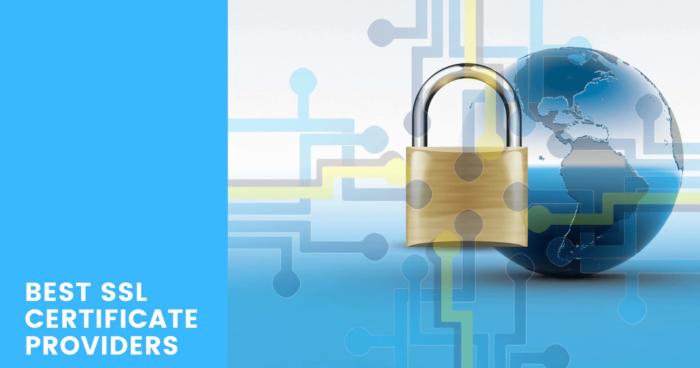
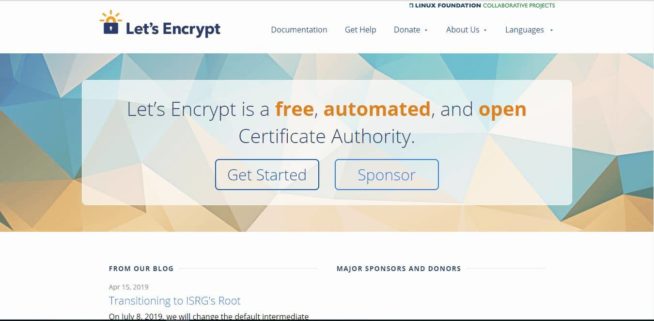
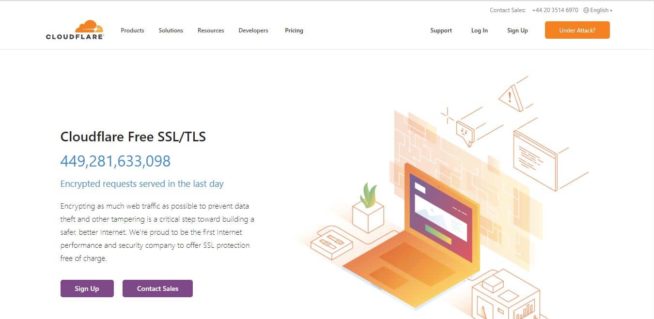
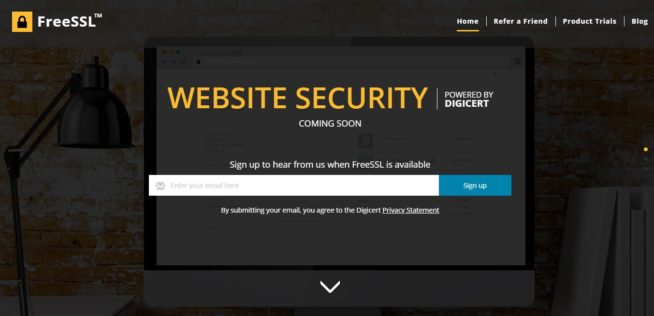
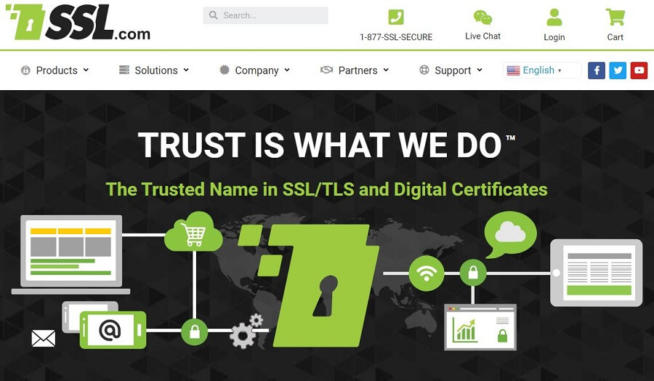
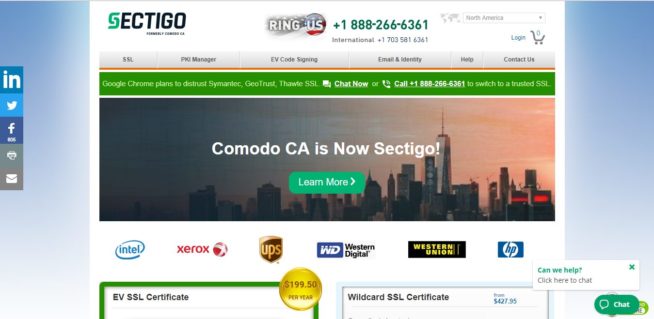
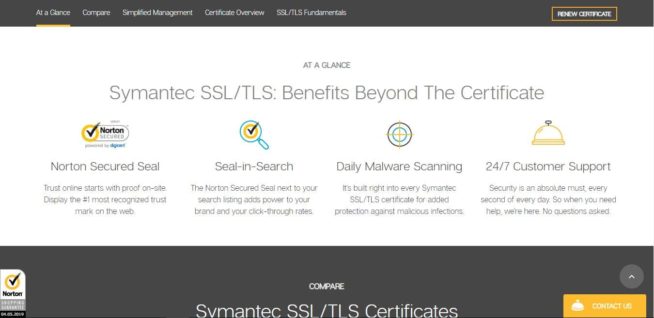
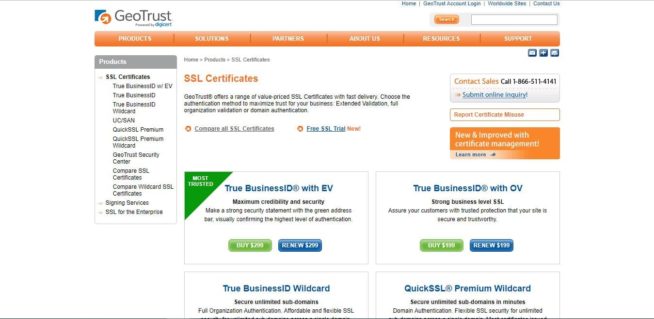
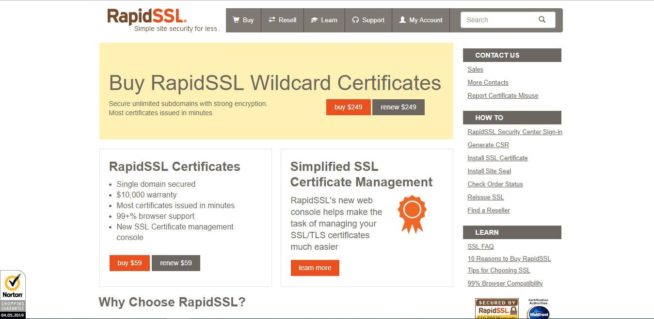
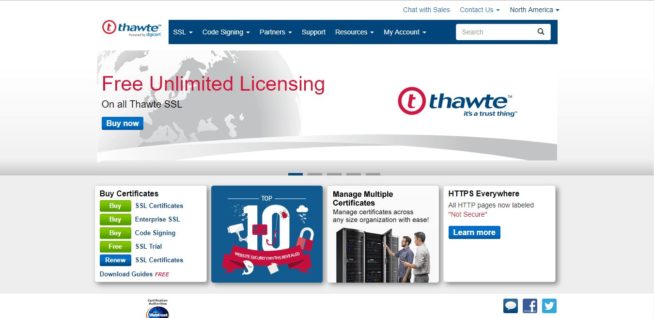
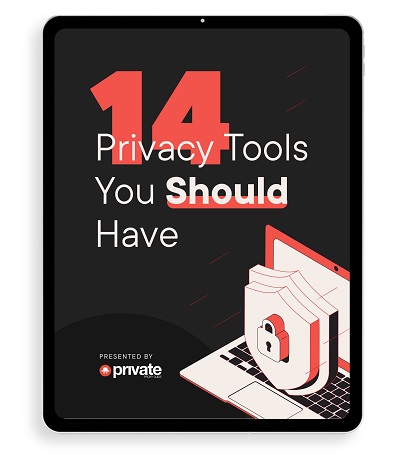
![Best SEO Proxy Providers in [month] [year] Best SEO Proxy Providers](https://www.privateproxyguide.com/wp-content/uploads/2023/05/Best-SEO-Proxy-Providers-150x150.jpg)
![5 Best VPN Providers ([year]) [PC, iOS, Android] VPN](https://www.privateproxyguide.com/wp-content/uploads/2021/03/vpn-150x150.jpg)
![16 Best Residential (ISP) Proxy Providers in [year] Best Residential Proxy Providers 2024](https://www.privateproxyguide.com/wp-content/uploads/2021/03/best-rotating-residential-proxies-2021-150x150.jpg)
![Best Usenet Providers in [year] Best Usenet providers](https://www.privateproxyguide.com/wp-content/uploads/2019/09/best-usenet-providers-150x150.jpg)
![Best Cloud Hosting Providers ([year]) [Linux & Windows] best cloud hosting providers](https://www.privateproxyguide.com/wp-content/uploads/2021/03/best-cloud-hosting-providers-150x150.jpg)
![Best Laravel Hosting Providers in [year] Best Laravel Hosting](https://www.privateproxyguide.com/wp-content/uploads/2023/01/Best-Laravel-Hosting-150x150.jpg)


![Best VPN for Kodi in [month] [year] Best VPNs for Kodi 2021 - To Avoid Buffering & Other Issues](https://www.privateproxyguide.com/wp-content/uploads/2018/05/kodi-launch-logo-150x150.jpg)
![Best Kodi Addons in [month] [year] 30+ Best Kodi Addons](https://www.privateproxyguide.com/wp-content/uploads/2018/06/best-kodi-addons-2018-150x150.jpg)
![Best VPN for DraftKings in [month] [year] Best VPN for DraftKings](https://www.privateproxyguide.com/wp-content/uploads/2018/07/Best-VPN-for-DraftKings-150x150.jpg)
![Best Fortnite VPN in [month] [year] Best VPN for Fortnite](https://www.privateproxyguide.com/wp-content/uploads/2018/07/Best-VPN-for-Fortnite-BattleRoyale-150x150.jpg)
![Best Showbox VPN in [month] [year] Best VPN for Showbox](https://www.privateproxyguide.com/wp-content/uploads/2018/08/best-vpn-for-showbox-150x150.jpg)
![Best VPN for School WiFi in [month] [year] Best VPN for School WiFi in 2021 - How to Bypass VPN Bans](https://www.privateproxyguide.com/wp-content/uploads/2018/08/Best-VPN-for-School-College-150x150.jpg)
![Best Kodi Builds in [month] [year] 10+ Best Kodi Builds](https://www.privateproxyguide.com/wp-content/uploads/2018/09/12-best-kodi-builds-150x150.jpg)